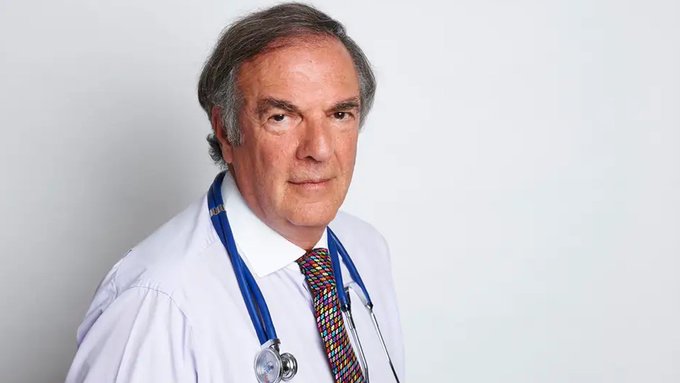An Australian-style co-payments system for healthcare
Britain’s love for the NHS must not blind us to the systematic faults during this crisis. From the difficulty in sourcing and delivering personal protective equipment to the ill-fated discharge of COVID-19-positive patients to care homes, something is not right with our supposedly perfect system.
Even during normal times, the NHS can struggle. A perpetual complaint is how many days, if not weeks, it can take to get a GP appointment. Many of us who use it and many who work in it find it dysfunctional. But it doesn’t have to be this way.
Those clapping every Thursday night in support of the NHS should speak to foreign visitors.
The NHS too often levels down. It refuses to acknowledge anything outside of itself. There are plenty of other countries out there, both developed and Western, that provide timely and universal access to healthcare. There are plenty of friendly countries to learn from.
During this crisis, we have heard much about Germany. They have a decentralised, insurance-based system. While this may be a better model for the UK in the long run, as long as there is healthcare for those who cannot afford insurance, it will be difficult to jump to this system in a single leap.
Another alternative is Australia’s world-leading mixed public-private system. Australians who visit and live in the United Kingdom cannot understand why they cannot simply book an appointment at any GP practice at any time. At home in Australia, they can opt for a fully state-funded appointment (“bulk billing”) or pay a small fee to see a private GP, which is subsidised by a state-supported co-payment. This means practically anyone can access quality healthcare promptly.
In this country, people with a range of incomes have to pay for their housing, food, gas, electricity, and clothing. All of these are basic human needs, provided in various qualities. For those struggling, we give them cash payments but do not direct how they spend the money. But somehow we have become obsessed with the false promise of healthcare that is perfectly fair and evenly distributed, irrespective of the ability to pay.
The priority should be ensuring that everyone has access to a minimum standard of healthcare—not that everyone has access to the same, but lower, level of care. Our goal should be to lift the quality of healthcare for everyone, not bring those at the top down. This can be achieved with a co-payment system, in the Australian mould, that provides broad swathes of people access to high-quality, private healthcare. This would both take pressure off the public system and provide much greater patient choice. This means everyone ends up with a higher standard of care.
Opponents of such a system would scream about the creation of a “two-tier system.” But, in reality, we already have a two-tier system. A relatively small number of people can currently opt for healthcare from private GPs and hospitals in the United Kingdom. Because the current two-tier system is not encouraged, and indeed, it has been positively discouraged by various government policies, those in power can claim plausible deniability that they have allowed the two tiers.
I have worked in private general practice for over 25 years in central London. If the NHS provided adequate care, no one would need to use our services. Many of our patients are not wealthy or famous, but young working people on an average London salary who do not have the time to see a GP near where they live. They pay our fees because they want to get back to work quickly.
Many of these patients have never bothered to register with an NHS GP. If NHS GPs were allowed to see their patients privately (banned since 1948), this could allow a co-payment system, which would enable many patients to pay a top-up fee to access faster medical care, likely using a remote consultation such as email, telephone, or video. NHS dentists and hospital consultants have no such restrictions.
General practice is changing. Younger doctors are not opting for full-time work but are working part-time in the NHS and privately for providers such as SameDayDoctor or video apps such as Babylon. Since these doctors have chosen to work this way, it would make sense to not have an artificial separation.
During the pandemic the private sector made their hospital beds available to the NHS. In practice, like the Nightingale hospitals, these beds were not needed. It is time now to build on this form of collaboration and finally to remove the stigma of “privatisation,” whereby the NHS contracts to private providers.
During the last election campaign, privatisation was regularly used as a scare tactic to imply that people would be forced to pay for medical care at some point. We have many people in this country who cannot afford to pay anything for additional medical care. The basic ethos of the NHS, which is universally free at the point of use, should not change. But we do need to have a broader debate about the private sector’s involvement in providing high-quality healthcare.
Dr Laurence Gerlis is the Chief Executive Officer and Lead Clinician at SameDayDoctor








